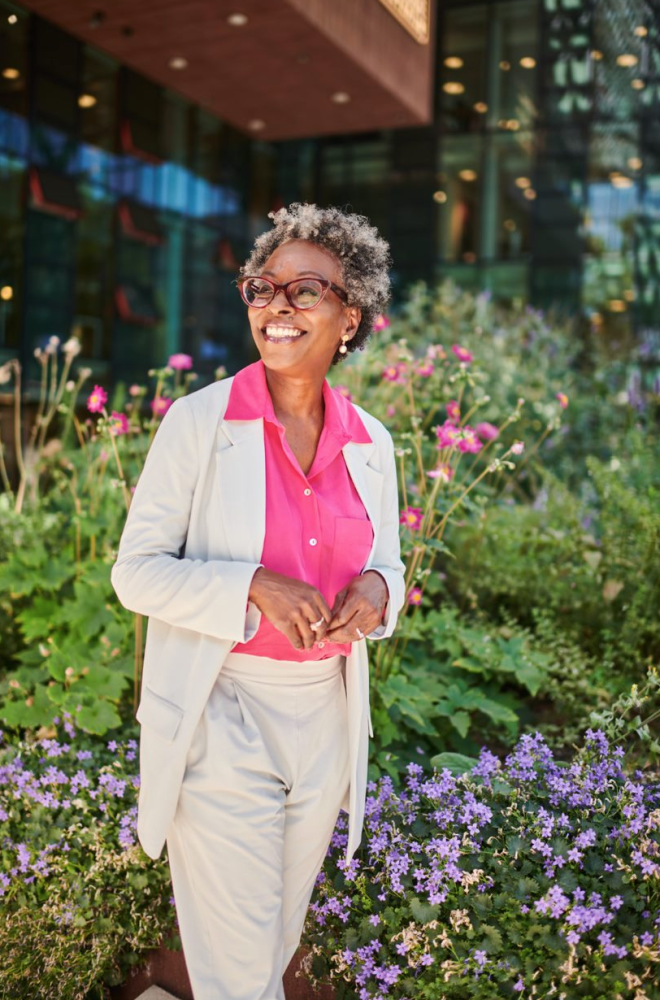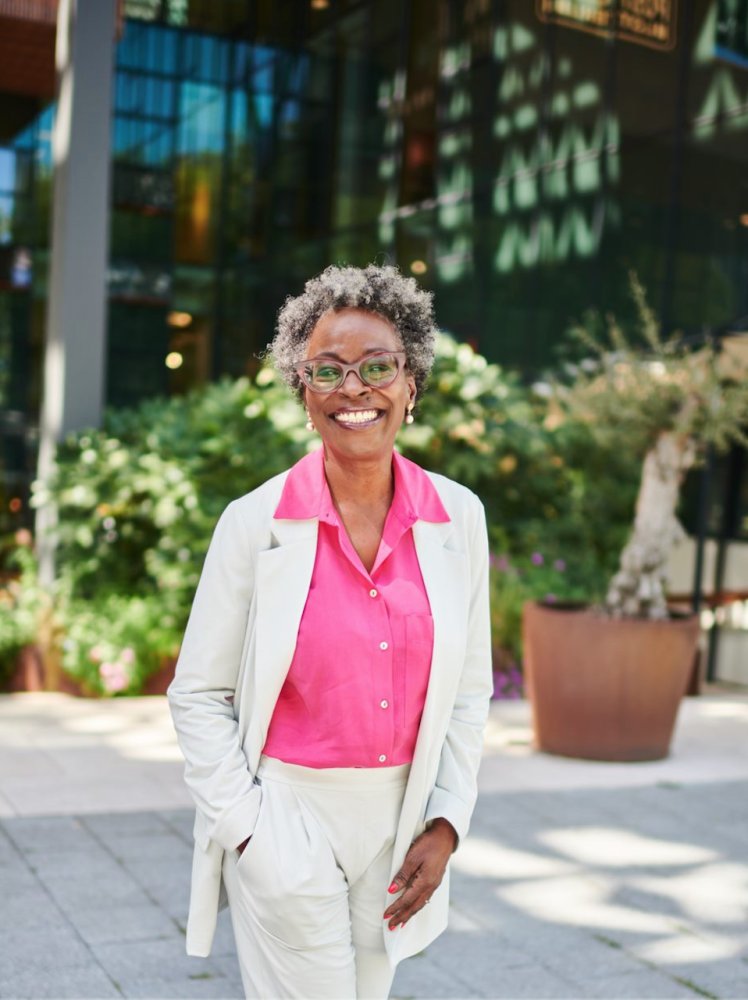Interview with Jurenne Hooi, Chair of the Black Achievement Month Foundation
“THE BUSINESS COMMUNITY IS LEADING THE WAY ON INCLUSION AND DIVERSITY, BUT MORE NEEDS TO BE DONE”
Jurenne Hooi – professional commissioner, poverty and debt relief advisor and chair of the Black Achievement Month foundation
If there’s anyone who epitomizes a ‘hands-on, can-do’ mentality, it has to be Jurenne Hooi. She grew up in Curaçao, moved to the Netherlands at age 19, worked hard to carve out a career, starting with a degree in health sciences from Maastricht University and going on to become an independent professional commissioner and advisor on social welfare issues and keynote speaker. Though she advocates for disadvantaged groups across the whole kingdom, Jurenne is riding a positive train towards a world with a more equitable promotion and distribution of wealth, opportunities and pathways to growth.

Jurenne, how did you go from social work to becoming a professional commissioner? “Political science had always had my interest, but my first choice wound up being health sciences. After my PhD in cardiovascular diseases, I moved to Amsterdam. For 12 years I headed a large social services organization serving Amsterdam-Zuidoost and Diemen. I developed my own vision on how I wanted to help people. This propelled me to start for myself as a poverty and debt reduction advisor. I also started a degree in governance at Nyenrode University, which then launched me into the role of professional commissioner. These days that is my function on the supervisory boards of several organizations, alongside teaching governance.”
Could you describe your role on the supervisory boards of Stichting Doen, the Amsterdam Museum and Cordaan? “A key reason for my joining these boardrooms was the domain they operate in and seeing, during my own tenure as managing director, that they had few to no members of colour. Personally, I felt boards generally were not complementary, and if I feel strongly about something, then that’s what I gravitate towards. My primary role is acting as an advisor and sounding board. At Amsterdam Museum I am the chairlady of the board, with inclusion as one of my priorities. At Cordaan my focus is on quality and safety, while at Stichting Doen we’re looking at sustainability, circular economy as well as social projects. If there’s something we can be doing to leave a better world for future generations, I want to be involved. When you’re a board member, it’s important to not put yourself in the director’s chair, while at the same time you have to stick to your guns. We do a lot of working visits where we talk to employees and stakeholders, in which being cognizant of your role is important.”
As a supervisory board member of Lieven de Key, a housing association, you are also involved in their operations in Zuidas. What is your opinion of the new projects in Kop Zuidas and the Innovation District? “My focus – as advisor and sounding board – is on the mission, vision and objectives of Lieven de Key, governance, and on priorities such as a healthy planet with nice, affordable housing. And above all it’s on helping to solve major housing issues in Amsterdam. Housing in Amsterdam is virtually inaccessible to for teachers, police employees, caregivers, first-time home buyers, young professionals or students. In my own housing portfolio, in the real estate and housing committee, we’re continually looking at the social imperative to serve all target groups, especially the first-time home buyers and students. De Key is doing a good job of fulfilling its societal obligation to supply these new homes. For example, around the Zuidas we are developing projects Stepstone (216 appartments) and Crossover (120 appartments), both for first-time home buyers. It is a wonderful supervisory board to be a member of, just like the other boards I’m in, and immensely proud of that.”

Going back to your vision on inclusion and diversity, could you expand on that? What is your experience of this in Zuidas? “Personally, I think we need to guard against the words diversity and inclusion becoming catchalls. I see inclusion as being complementary. It’s not only about colour, but also gender, age, being overprivileged or under-privileged. In a diverse team, you can tackle a product, problem or topic from a variety of angles and that has really big payoffs, both in the workplace and societally. While I think the business community in places like Zuidas is leading the way, there is still more work that needs to be done.”
You chair the Black Achievement Month foundation. What is your mission and what do they do? “BAM’s objective is to shine a spotlight on individuals of colour – with African roots – who have played important roles in art and culture. People forget how important it is to have role models. By offering a platform for black excellence, we’re showing future generations that it is possible! Aside from arts and cultural programming, we also organize academic debates to which everyone is welcome. At the end of the day, no one should be judged as a group, but by who he or she is as an individual.It will probably take generations, but I’m optimistic this train will keep moving towards a world where wealth is better distributed among all. We are on the right track.”
Between all your other activities, you are also publishing a book, Eigen Schuld… (‘Own Fault…’). Can you tell us more about that? “I spent twelve years working as a director on social issues around poverty and debt, and that gets under your skin. The government has still a way to go at solving this problem and could learn from the corporate in terms of how they’re working to address certain problems and cater to their clients’ needs. Working with the corporate sector on these issues has brought me a lot of insights. Part of the book consists also of portraits of clients I worked with. This is a shared, societal problem, it can happen to anyone. I hope the book, published by Prometheus, will contribute to changing the way we approach the debt issue. It’s coming out in November!”
What message would you like to leave Hello Zuidas readers with? “Follow your heart in all things! I too started out as a student, scraping by, but in my career I’ve always followed my heart. Money brings happiness to some extent, but the rest is down to what gives you satisfaction. That’s how I plan to carry on, and that’s how to keep striving for and developing your full potential.”
